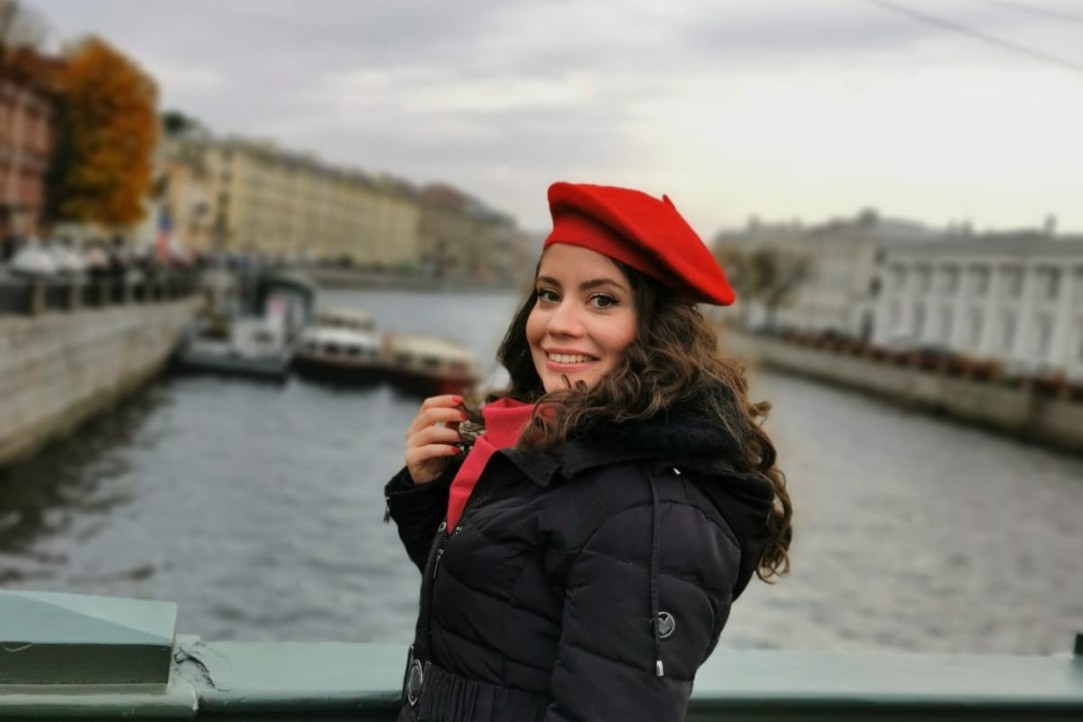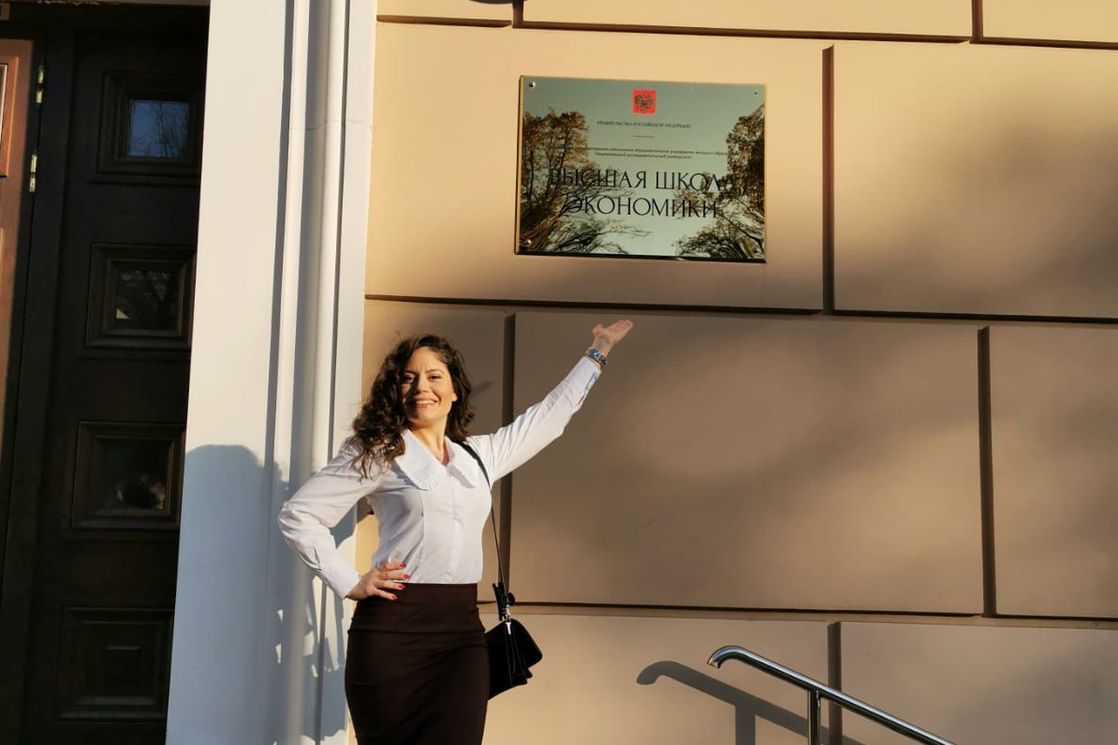‘Gaining Practical Knowledge and Learning to Do a Lot in a Short Time’—The Life of an HSE PhD Student

Milica Simonovic, from Belgrade, Serbia, is a doctoral student at the HSE University Faculty of Economic Sciences. She is currently working on her doctoral thesis on corporate governance and intellectual capital disclosure. We interviewed Milica to find out more about her thesis and her experience of the university’s application process for PhD students.
International students will be able to apply for full-tuition scholarships for PhD programmes at HSE University from March 1 to March 11, 2022.
Admissions webinar of the Doctoral School in Economics will be held on February 11.
Milica Simonovic
If somebody had asked me several years ago, ‘Milica, what will you be doing in a couple of years?’, the answer would probably be something like ‘I will be working in one of the big four auditing companies.’ But things turned out differently.
I did my bachelor’s and master’s at the University of Belgrade Faculty of Economics. During my master’s studies, I was an exchange student in St Petersburg, at RANEPA University. When I came back, I defended my master’s thesis and started working at a start-up. Now I’m working at one of the biggest asset management companies, Blackrock, as an investment data analyst.
It was during my internship at Blackrock that I applied for PhD studies at HSE University. After my exchange programme, I had the opportunity to prolong my education in Russia and have it funded by the Russian state, so I didn’t have to pay for my future education.
When I started looking at different universities, programmes and departments, I contacted the Russian House (the Russian Center of Science and Culture) in Belgrade for recommendations. They said that in terms of economics, HSE University is the best, but that competition was very high.
I missed the application date in December 2019, but then I saw on social media that there was another application deadline in March 2020 and I still had time to apply. I decided it was better to apply than not to apply.
I received an email saying that Prof. Irina Ivashkovskaya wanted to talk to me, to have an interview, and we started communicating. Later in the process, I received an email saying that I had been accepted for a PhD at HSE University for the following year. I think they chose me because they wanted students for the Intellectual Capital project. Another university I applied to also accepted me, so I had to choose between it and HSE. I chose HSE.

And the funny story is that I got two emails on the same day. One was from HSE, which said that I had been accepted as a PhD student and my supervisor would be professor Irina Ivashkovskaya, and the other was an offer for a standard contract at Blackrock.
I thought that I would have to choose between my job and HSE. But as things turned out, the pandemic and isolation had one positive side for me: I had an opportunity to work remotely and study at the same time.
I’m now in my second year of PhD studies at the HSE School of Finance. Officially, the programme lasts three years, but it actually depends on your research, thesis work, and published articles, which is the most difficult part. I talked to some of my older Russian colleagues who are now at the end of their PhDs, and I can see that this process varies from student to student.
Some students manage to finish their programme in three or four years, but for others, it takes six. It depends.
The topic of my future thesis is related to corporate governance and intellectual capital disclosure. For institutional investors, it’s very important to know a company’s intangible assets and total value. My topic is connected with how to disclose information on intellectual capital in financial statements.
I presented my literature review at a conference with Professor Olga Demidova, and now I'm working on an updated version of it. The main point of this presentation in my research work was to highlight all the factors that have an impact on intellectual capital disclosure. It was a very tough job, because I chose a 20-year period for my research and had to read a lot of papers to see the research gaps that are important for my future research work.
Under some accounting standards, the disclosure of intellectual capital is not possible, but some companies try to find ways to disclose this information. The trickiest part of my research work is finding and calculating the appropriate intellectual capital disclosure index and seeing how companies actually try to disclose it.
My research will use annual statements from companies in the IT industry, because that’s where we can see the biggest difference between a company’s market value and its book value.
In the future, most of the information on intellectual capital disclosure will come from integrated reporting, which combines disclosure of both financial and non-financial information. This is the best approach, but it isn’t convenient for my research because not many countries implement it at the moment.
I'm glad that Prof. Ivashkovskaya is my supervisor—she's a very good teacher. She is strict, and when she approves something, I know that it must be of a really high level. When I wrote my research proposal, she made quite a few corrections, and I thought, ‘Oh my god, what's going on with me? This has never happened before.’ But then I noticed that my friend and colleague from Romania, whose supervisor is also Prof. Ivashkovskaya, had the same problem. If she approves something, it means that everybody will.
An International Education
Education in Russia was different from how I thought it would be. In Belgrade, you have one exam, prepare 700 pages for that exam, and that's it. But in Russia, the system is completely different.
You don’t need to know everything—you have to choose a lot of sources, understand them, and prepare a project or do your own research, maybe using computer software.
Maybe a combination of Serbian and Russian education is best. In Serbia, we get a lot of theoretical knowledge, but getting practical knowledge and learning to do many things in a short time is more typical for studies in Russia.
Last year, all the PhD students were invited to send motivation letters and CVs to assist Professor Yulia Ovanesova who teaches Real Estate in Corporate Property Portfolios. Our task is to help manage the course, organise meetings via MS Teams, and prepare materials for students. Most of these lectures are organised by a manager from Ernst & Young, Moscow, a consultant for real estate portfolios. It was very useful for me, because I have never had a course where about 90% of the lectures are delivered by a professional from the business sphere.
There are four international students from different countries in my year of studies. We have one girl from India, a guy from Turkey, another guy from Romania, and me.
We come from different countries and cultures, but we are such good friends and we have worked together on most of the projects. It's so interesting.
There’s a student from Nigeria who is now at the end of his PhD studies. His topic is related to mine and we are planning to write something together in future. I met him when I was in Moscow in October, and we talked face to face for the first time—not only about our future research work and education at HSE University, but also about his life in Nigeria, my life here in Serbia. It was really wonderful because the culture is different. Whenever I come to Moscow, I meet a lot of friends not only from Russia, but also from Asia, Africa, Europe. It’s great.
Balancing Work and Leisure
My typical working day starts early: I usually go to the gym in the morning, then I start working and work 10 hours per day or more. After that, I prepare something for my studies, do some kind of research work or homework etc. Multitasking is the norm for me.
Sometimes I have several meetings at the same time, and maybe a laboratory with HSE, or courses and seminars during the working day.
In order to manage all these things, I have to be very well organised and well-prepared.
I can’t say it’s too much, because I chose it. When I noticed that I was exhausted and didn’t have time for anything, I decided it was time for a vacation. Now I feel much better, fresh and relaxed. You need to take small breaks from time to time.
I’ve been to Moscow several times, and whenever I'm there, I want to see more. I was impressed by VDNH, Gorky Park and, of course, the churches and cathedrals. But my biggest impression was the price of tickets for students, for example, for the Bolshoi Theatre. In Belgrade, students have discounts, but it's practically nothing. When I told my parents that I could attend a ballet or an opera performance for 100 roubles, they were impressed.
Register for the Admissions webinar of the PhD programme in Economics
Admissions for HSE doctoral programmes with full-tuition scholarships will be open March 1 to March 11, 2022
Learn more about the application process on the Doctoral Schools page
Olga Demidova
Academic Director of Doctoral School in Economics
Irina Ivashkovskaya
Head of the School of Finance
Yulia Ovanesova
Senior Lecturer at the School of Finance
